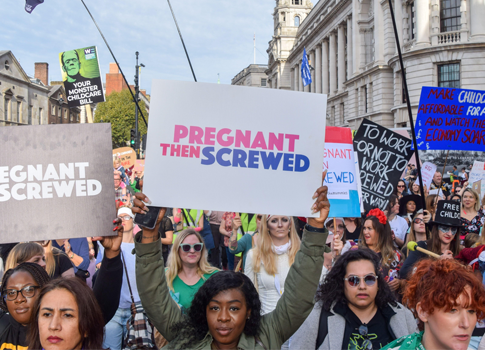As we begin a new decade it’s a good opportunity to take a step back and look at the core marketing trends that industry experts believe will be the drivers of change in 2020.
Undoubtedly, we work in a fast paced industry where innovation constantly shifts the shape of media plans and how we can reach audiences as more sophisticated tools allow us to tap into consumer behaviours in ways that weren’t previously possible. At the same time wider external factors will also impact the industry with regulations such as GDPR and continued public consciousness needing to be considered.
In a toolkit recently published by Warc based on expert analysis and interviews with a number of chief marketing officers they identified some of the core drivers of change that will have the biggest impact on marketing strategies this year:
Society
Whilst ‘society’ is a fairly broad driver of change there were two themes which came out consistent from those interviewed around the theme of society.
The first societal pressure driving change is the on-going rise of conscious consumerism. The scale of the Extinction Rebellion protests last year and growing influence of public figures such as Greta Thunberg are indicative of a heightened public concern around environmental concerns which brands will need to respond to. Of those interviewed almost 80% felt that brands needed to take a stand on social issues with 84% saying that environmental consciousness was important for their 2020 marketing strategy. For a lot of brands the immediate response is to focus on packaging and the supply chain. For example, Tesco is planning to remove one billion pieces of plastic from products sold in store by the end of this year, something which will undoubtedly garner them positive brand equity and pressure other supermarkets to follow suit to avoid any negative PR.
The second societal pressure highlighted in the report is around data privacy concerns, so much so that this is the area marketers felt was most important for them to address this year. This change is being driven by a combination of consumers taking a more active role in managing their data combined with enhanced privacy regulation from the likes of GDPR.
Technology
Despite the conversation surrounding voice control/recognition this is an area that in reality is still an emerging technology that almost 70% of respondents admit they are not prepared for. Instead, there are two main areas of technology that will be prioritised in marketing strategies this year, with AI remaining the biggest focus for brands as well as growing interest around enhanced payment technologies.
Interestingly, the majority of respondents also agreed that brands had over invested in tech at the expense of creativity. This was particularly apparent in the world of programmatic where respondents expressed concerns around the lack of contextual targeting with many expecting to see more contextual targeting products entering the market this year.
Economy
Marketing bibles such as The Long and Short of It and How Brands Grow highlight the need for a balance between long term brand building and short term objectives. With this in mind it comes as no surprise that senior marketers are increasingly recognising that they have over invested in short term marketing at the expense of their brands. In the survey 70% acknowledged that they had under invested in brands with 40% reporting that in 2020 they would be increasing their brand investment.
Whilst there is still an incongruence between the number of brands saying they will increase brand spend versus those recognising they are invested in short termism, this demonstrates that a lot of marketing strategies will be shifting their objectives, meaning the work of people like Binet and Field remains relevant.
Industry
Within the industry itself there are a number of trends driving change in 2020, with brands are focusing on certain areas which will shape these changes.
When asked which elements of digital transformation will be most important in 2020, half of the respondents responded with customer experience. In 2019 CX was also the most popular answer but with the renewed focus on long term brand building in 2020 brands will be focusing their attention on how they can apply this to the customer experience journey.
As part of this focus on customer experience brands are looking for consultative approaches which present opportunities for agencies, many of whom are already beginning to up skill themselves and provide this service. Alongside this trend there is also an increase in the number of brands planning to move more of their marketing in house. On the creative front 34% said they planned on in housing more in 2020 versus only 25% planning to outsource more. Similarly when it comes to adtech 34% again said they planned to bring more in house versus only 13 planning to outsource more. This provides an indication of how the agency and brand dynamic may shape over the coming years as clients start to in house more marketing that would have traditionally sat with agencies, whilst agencies look to offer a greater breadth of services.






